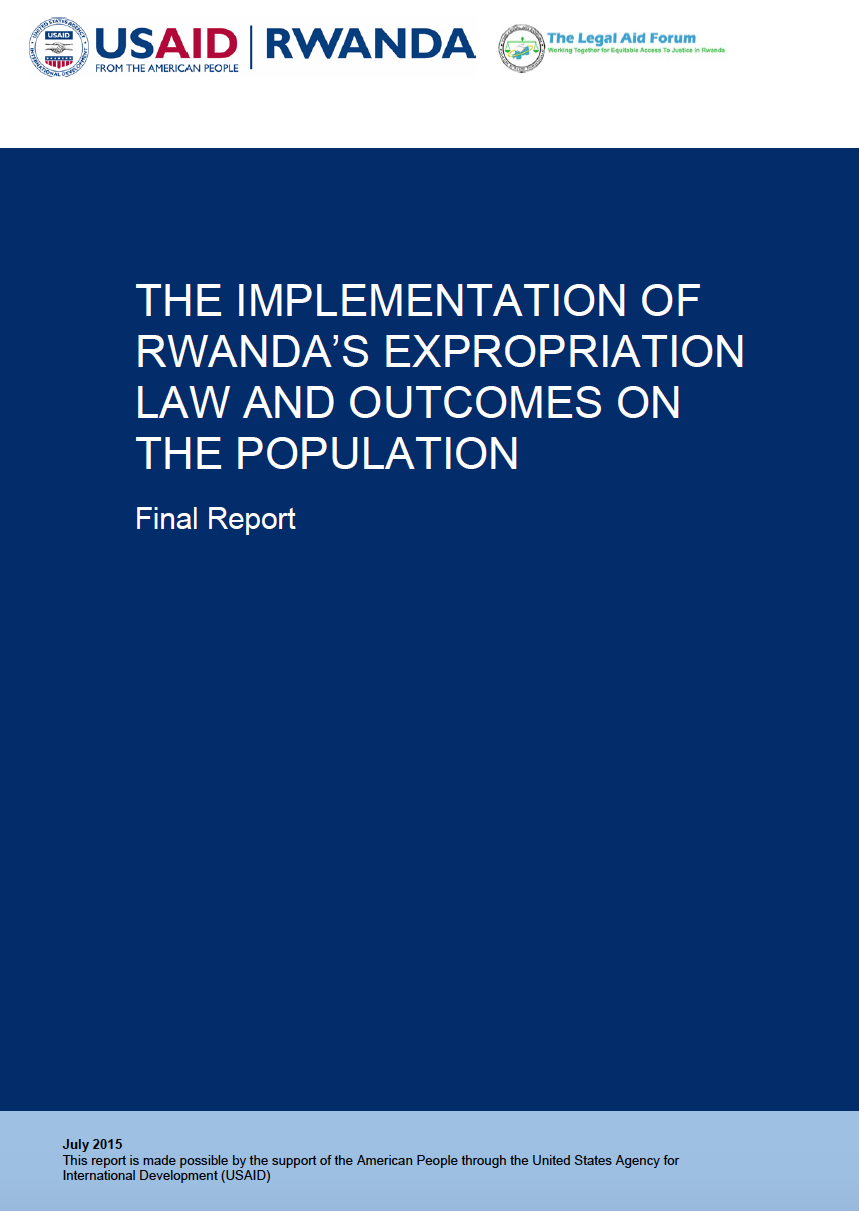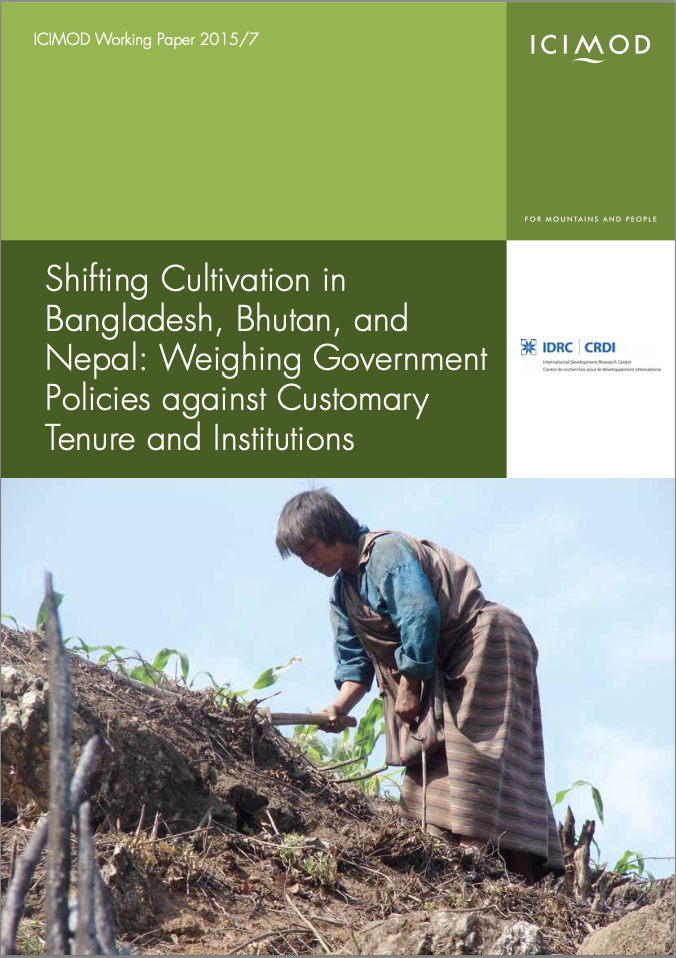Final Report: Rwanda’s Expropriation Law and Outcomes on the Population
Rwanda is developing at a remarkably rapid pace, and with that development has come a
multitude of corresponding changes to the orientation and use of land throughout the country.
In light of these changes, law n°18/2007 of 19/04/2007 relating to expropriation in the public
interest was adopted to provide clear procedures for the government to follow in the taking of
privately-owned land for other uses deemed to be in the public interest.
This law provides procedures for notice to affected landowners, the determination of public







